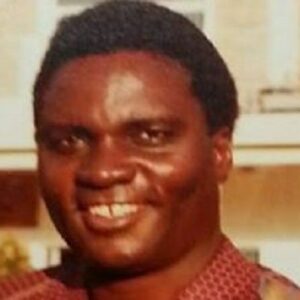Juvenal Habyarimana was a Rwandan politician who served as the country’s third President from 1973 to 1994. He ruled almost single-handedly over Rwanda, a highly volatile country in Africa, for more than two decades after seizing power in a 1973 coup. To the core a dictator, he clung to power with an iron fist that lasted until his assassination in 1994. During his rule, citizens were compelled to chant his name and dance in his praise, and he exercised considerable control over the nation’s political activities, having founded the National Revolutionary Movement for Development and appointing himself sole leader of the single-party state. Born into an aristocratic Hutu family, he initially intended to pursue a career in medicine before enrolling in military school. He quickly rose through the ranks, establishing himself as a successful military professional. His army career instilled an insatiable desire for power in him, and he ventured into politics. After ascending to the position of head of the National Guard and the country’s police, he orchestrated a bloodless military coup in 1973, seizing control of the country for himself. Citizens grew increasingly frustrated with his dictatorial rule, which ended dramatically in 1994 with his assassination.
Childhood & Adolescence
He was born in Ruanda-Urundi (now Rwanda) on 8 March 1937 to an aristocratic Hutu family.
He studied humanities and mathematics at St. Paul’s College before enrolling in Lovanium University in the Belgian Congo to study medicine (now the Democratic Republic of the Congo).
He returned home from Congo in 1960 to begin National Guard training in Kigali and enrolled in military school. He distinguished himself as an outstanding cadet and was also trained as a parachutist during his military training. He graduated with honors and was appointed a second lieutenant in the National Guard in December 1961.
Career of Juvénal Habyarimana
In 1963, he was appointed Chief of Staff of the National Guard, a position he held for two years. In 1965, he joined the government as Minister of Defense and Chief of Staff of the Police.
He developed close ties with President Gregoire Kayibanda, whom he regarded as a confidant. Habyarimana’s work in the army impressed the president, who appointed him major general in January 1973.
Habyarimana had grown increasingly ambitious and had set his sights on the presidency. He led a coup against President Gregoire Kayibanda in July 1973, accusing him of failing to take adequate steps to resolve tribal and regional conflicts, thereby ousting the ruling Parmehutu party. He was then elected President of Rwanda on 5 July 1973.
He founded the National Republican Movement for Democracy and Development in 1975 and declared it the country’s sole legal political party. Until 1978, Rwanda’s administration was ruled by the military.
In 1978, he was elected president for a five-year term as the sole candidate. His first years in office were marked by significant development and economic progress. He also gained the support of both the Hutu and Tutsi ethnic groups as a result of his apparent impartial policies. However, citizens grew dissatisfied with his administration over time.
He was re-elected in 1983 and 1988. Due to the fact that he was the sole candidate, voters had no choice but to re-elect him. However, there was an unsuccessful coup attempt in 1980 to depose him.
By this time, the Western world was exerting considerable pressure on him, condemning his dictatorial rule. He eventually conceded that some reforms in Rwandan politics were necessary. As a result, he proposed a charter for the establishment of a multi-party system.
In 1992, Rwanda held its first multi-party elections. The legislation was amended to include both a prime minister and a president. However, these changes made no difference in terms of resolving the country’s growing problems, which were exacerbated by political tensions between rival tribes.
In January 1994, he was appointed President of the power-sharing transitional government established by the 1993 Arusha peace agreement.
Personal History and Legacies
He was married to Agathe Habyarimana, a member of a prominent Hutu political family. His wife was widely believed to have been instrumental in his political career. The couple was blessed with eight children.
On 6 April 1994, he was flying from Tanzania’s Dar es Salaam International Airport to Burundi’s Bujumbura International Airport with Burundian President Cyprien Ntaryamira. A surface-to-air missile struck one of the plane’s wings and a second missile struck its tail, causing the plane to burst into flames in mid-air and crash into the presidential palace’s garden. The plane’s 12 occupants were all killed in the crash.
The assassination of the two African presidents precipitated the Rwandan Genocide and the First Congo War, which resulted in the deaths of an estimated 500,000–1,000,000 Rwandans in what would become the twentieth century’s bloodiest massacre.
Estimated Net Worth
The estimated net worth of Juvénal Habyarimana is unknown.


